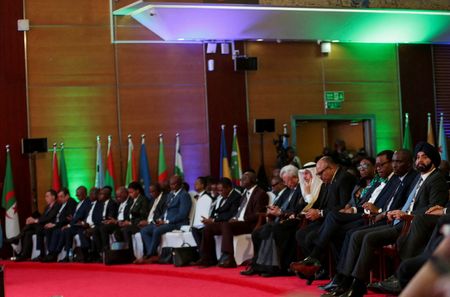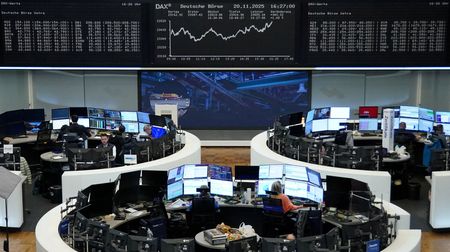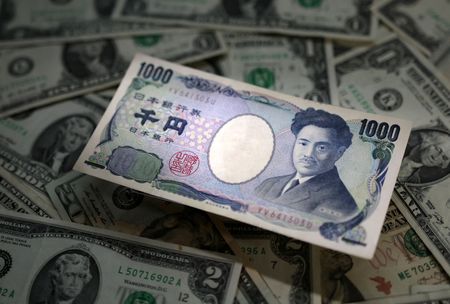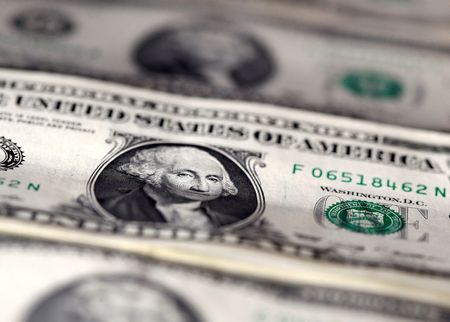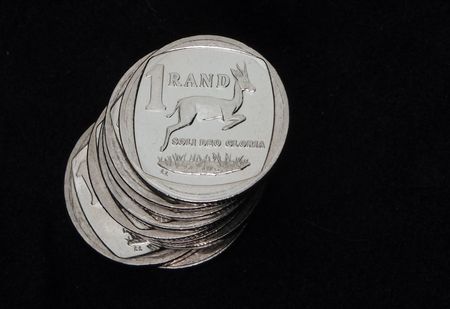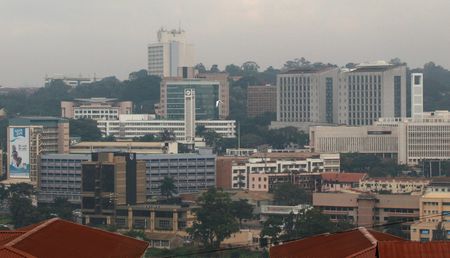By Duncan Miriri
DAR ES SALAAM (Reuters) – African countries plan a fresh push at international summits this year for standard measures of economic strength such as GDP to have better recognition of their vast natural assets and resources.
The initiative is being driven by the African Development Bank in the hope that recalibrating GDP would automatically improve debt metrics and relieve borrowing market pressures that had triggered dozens of economic crises in recent decades.
There has long been scepticism over how much hard cash precious ecosystems can generate for poorer countries. But the U.N. estimates that Africa, which makes up 20% of the world’s land surface, is home to one-quarter of all mammal species and one-fifth of bird species.
It also has around one-sixth of the world’s remaining forests and those, along with mangroves, help lock away planet-damaging carbon emissions – a benefit that should be included in GDP calculations, the AfDB argues.
“It will be on the agenda at every single step, G7, G20 (meetings)… I expect others to recognise that it is time to begin to change the valuation of African economies,” AfDB President Akinwumi Adesina told Reuters on the sidelines of a conference last week in Tanzania.
However, there are doubts over how much of an impact such a recalibration would have on investors and creditors given the leap still needed to monetize natural wealth via the likes of carbon credits.
“You can take more money, but the question is, can you pay more? If you are not able to pay more, then there will be a problem,” said Kariuki Ngari, the CEO of Standard Chartered Kenya, on the question of whether debt would be more cheaply available to Africa.
The AfDB says Africa’s total official GDP in 2018 of $2.5 trillion was 2.5 times lower than the continent’s natural capital that year, which it estimates at $6.2 trillion. It defines natural capital as forests, fish stocks and minerals such as lithium that are critical to the global energy transition.
Higher official GDP numbers could also help lower debt-to-GDP ratios, which creditors and investors use to gauge the ability to pay back debt.
African nations often have lower credit ratings and face high lending costs because of their perceived riskiness. For example, Nigeria and Kenya issued dollar bonds with interest rates of 10% last year, compared with below 5% rates for advanced economies like the United States.
Total external debt among economies in sub-Saharan Africa has risen to about $500 billion from $150 billion a decade and a half ago according to the World Bank.
Officials have not yet detailed which countries would see the biggest improvement in GDP or stated how much of a drop in borrowing costs they might see if their natural wealth was factored in.
ISSUE TO FEATURE IN COMING MEETINGS
The recalculation issue is likely to feature during South Africa’s G20 presidency this year. The group’s top finance officials are due to meet there in February.
A spokesperson for South Africa did not immediately reply to a request for comment. Adesina of the AfDB said the continent also planned to hammer out a common position on the issue at an African Union summit in Ethiopia in mid-February.
The debt issue is also linked to climate change which many of Africa’s economies are vulnerable to.
“Exorbitant capital costs mean that a continent with the potential to be a renewable powerhouse accounts for less than 1% of global installed solar capacity,” said Amina Mohammed, deputy secretary general of the United Nations.
Kenya’s President William Ruto and Denis Sassou Nguesso of the Republic of the Congo also championed the push to change how the values of African economies are calculated at the COP29 global climate talks last year in Baku, Azerbaijan.
However, rich nations and international financial institutions did not make any commitment to the campaign.
The World Bank has published reports for the last two decades that chart the wealth of economies including natural resources. Its report last year showed that 6% of global GDP is in renewable natural assets, which includes water, fish stocks, renewable energy sources and other ecosystems.
Finding a way to monetise Africa’s natural wealth could help bridge the continent’s multi-billion financing gap. There is “genuine fiscal need across the continent,” said Rajiv Shah, president of the Rockefeller Foundation.
China, the biggest bilateral creditor for many economies in the region, backs Africa’s call for a new formula to calculate its wealth.
“We call for a reassessment of the gross domestic product of African economies, including the green wealth of the African continent,” Beijing said at the end of a summit with African leaders last September.
Zambia, which just emerged from its debt restructuring, supports action to mobilise more funds for development.
“We dealt with the debt burden,” said Zambia’s President Hakainde Hichilema, adding the country urgently requires money for more electricity connections. “We don’t have the time.”
(Reporting by Duncan Miriri; Additional reporting by Simon Jessop and Marc Jones; Editing by Karin Strohecker and Frances Kerry)

